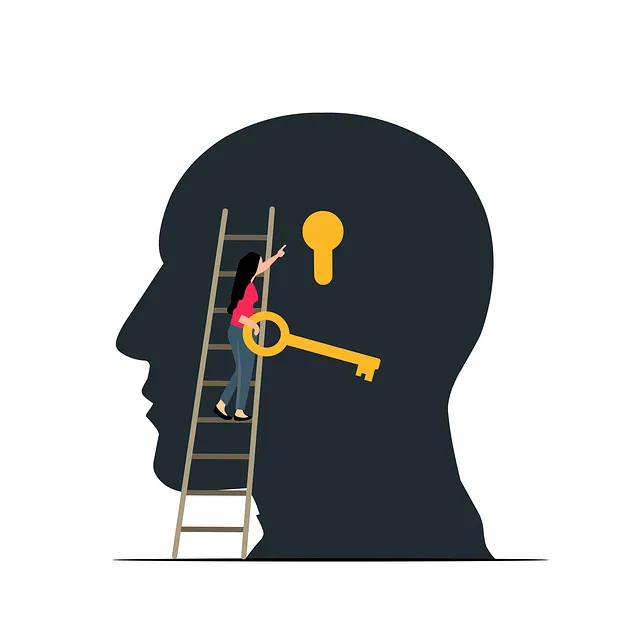In today's demanding healthcare landscape, self-assessment tools are vital for managing mental well-being, with resources like the Northglenn Kaiser Permanente psychiatry phone number. These tools empower individuals to understand and address emotional states early, develop coping skills, reduce burnout risks for healthcare providers, and enhance patient care quality. An effective tool should include diverse components for a comprehensive evaluation, such as questions on emotional well-being, stress levels, and coping mechanisms, offering customized feedback and resources like journaling exercises, crisis intervention, and mental wellness podcasts. Development requires meticulous planning, expert collaboration, and continuous improvement based on user feedback and evidence-based practices to reduce stigma, enhance cultural competency, and develop coping skills, ensuring these tools remain relevant and valuable for patients and healthcare providers within organizations like Northglenn Kaiser Permanente.
Mental wellness self-assessment tools play a crucial role in empowering individuals to take charge of their mental health. This article explores the development of such tools, focusing on a case study of the Northglenn Kaiser Permanente psychiatry phone number resource. We delve into understanding the growing need for these assessments, identifying key components for effectiveness, and discussing implementation strategies. By examining this resource, we provide insights into enhancing mental wellness support and its continuous improvement over time.
- Understanding the Need for Mental Wellness Self-Assessment Tools
- Key Components of an Effective Self-Assessment Tool
- Developing and Testing the Northglenn Kaiser Permanente Psychiatry Phone Number Resource
- Implementation and Continuous Improvement Strategies
Understanding the Need for Mental Wellness Self-Assessment Tools

In today’s fast-paced world, prioritizing mental wellness is more crucial than ever, especially within healthcare professions that often demand long hours and high-stress levels. This has led to a growing recognition of the need for accessible and effective self-assessment tools to support individuals in their journey towards better mental health. For those seeking guidance, the Northglenn Kaiser Permanente psychiatry phone number offers a valuable resource, providing initial insights into managing one’s mental well-being.
Self-assessment tools play a pivotal role in empowering people to take charge of their mental health proactively. These tools can help individuals gain a deeper understanding of their emotional states, identify potential issues early on, and develop coping skills for stress management. Furthermore, they are particularly beneficial for healthcare providers who may be at risk of burnout due to the demanding nature of their work (Burnout Prevention Strategies for Healthcare Providers). By incorporating self-assessment into their routine, professionals can enhance their Mood Management and develop more robust Coping Skills Development, ultimately improving not only their own mental wellness but also the quality of care they provide.
Key Components of an Effective Self-Assessment Tool

An effective mental wellness self-assessment tool should incorporate several key components to ensure comprehensive evaluation and guidance. Firstly, it must include a range of questions designed to assess various aspects of mental health, such as emotional well-being, stress levels, and coping mechanisms. These questions should be tailored to cover different areas, allowing individuals to reflect on their thoughts, feelings, and behaviors. Secondly, the tool should offer personalized feedback based on user responses, providing insights into potential areas of concern and suggesting appropriate strategies for improvement.
Integrating mental wellness journaling exercises, crisis intervention guidance, and even a curated selection of relevant mental wellness podcast series can enhance the utility of such tools. By encouraging self-reflection through journaling, individuals can gain deeper insights into their mental states. Crisis intervention resources ensure that users have access to immediate support when facing distressing situations. Moreover, incorporating audio content from mental wellness podcasts can offer additional educational value and inspire users with real-life stories and expert advice, ultimately contributing to a more holistic self-assessment experience, especially for those seeking guidance from Northglenn Kaiser Permanente psychiatry phone number resources.
Developing and Testing the Northglenn Kaiser Permanente Psychiatry Phone Number Resource

The development of a self-assessment tool for mental wellness requires careful consideration and expert input. One such innovative resource is the Northglenn Kaiser Permanente Psychiatry Phone Number, designed to offer crisis intervention guidance and support to individuals in need. This phone line serves as a vital link, providing immediate assistance and directing users towards appropriate care. The process involves extensive research, collaboration with mental health professionals, and rigorous testing to ensure its effectiveness.
This resource encompasses a range of services, including stress management techniques and social skills training, tailored to individual needs. Through interactive conversations, trained professionals guide users through self-assessment exercises, offering valuable insights into their mental wellness. The Northglenn Kaiser Permanente psychiatry phone number is more than just a helpline; it’s a comprehensive program that has the potential to revolutionize access to mental health support, making care more accessible and personalized.
Implementation and Continuous Improvement Strategies

The development of self-assessment tools for mental wellness should be viewed as an ongoing process rather than a one-time project. Northglenn Kaiser Permanente psychiatry phone number can serve as a model for organizations aiming to enhance their mental health support systems. Continuous improvement strategies are essential to keep these tools relevant and effective. Regular feedback from users, such as patients and healthcare providers, should be collected and analyzed to identify areas of success and potential shortcomings. This user-centric approach ensures that the self-assessment tools evolve with changing needs and best practices in mental health care.
Implementing Mental Illness Stigma Reduction Efforts alongside these tools can foster a more inclusive environment, encouraging individuals to seek help without fear of judgment. Additionally, providing Healthcare Provider Cultural Competency Training and integrating Coping Skills Development resources into the self-assessment process can enhance the overall quality of care. Regular updates and iterations based on evidence-based practices will guarantee that these tools remain valuable assets in promoting and maintaining mental wellness within communities served by Northglenn Kaiser Permanente or similar healthcare organizations.
Mental wellness self-assessment tools are invaluable resources for individuals seeking to understand their emotional well-being. As discussed, these tools should be comprehensive yet user-friendly, incorporating key components like accessibility, reliability, and culturally sensitive content. The Northglenn Kaiser Permanente Psychiatry Phone Number resource exemplifies a successful development process, highlighting the importance of collaboration between healthcare professionals and community needs. By implementing effective strategies for continuous improvement, such as gathering user feedback and staying updated with mental health research, these tools can evolve to better support diverse populations. Embracing innovative approaches ensures that self-assessment remains an accessible gateway to improved mental wellness.






